Supporting a young person
Here you'll find helpful information if a young person has asked you to look at this page. Take your time, and know support is available.
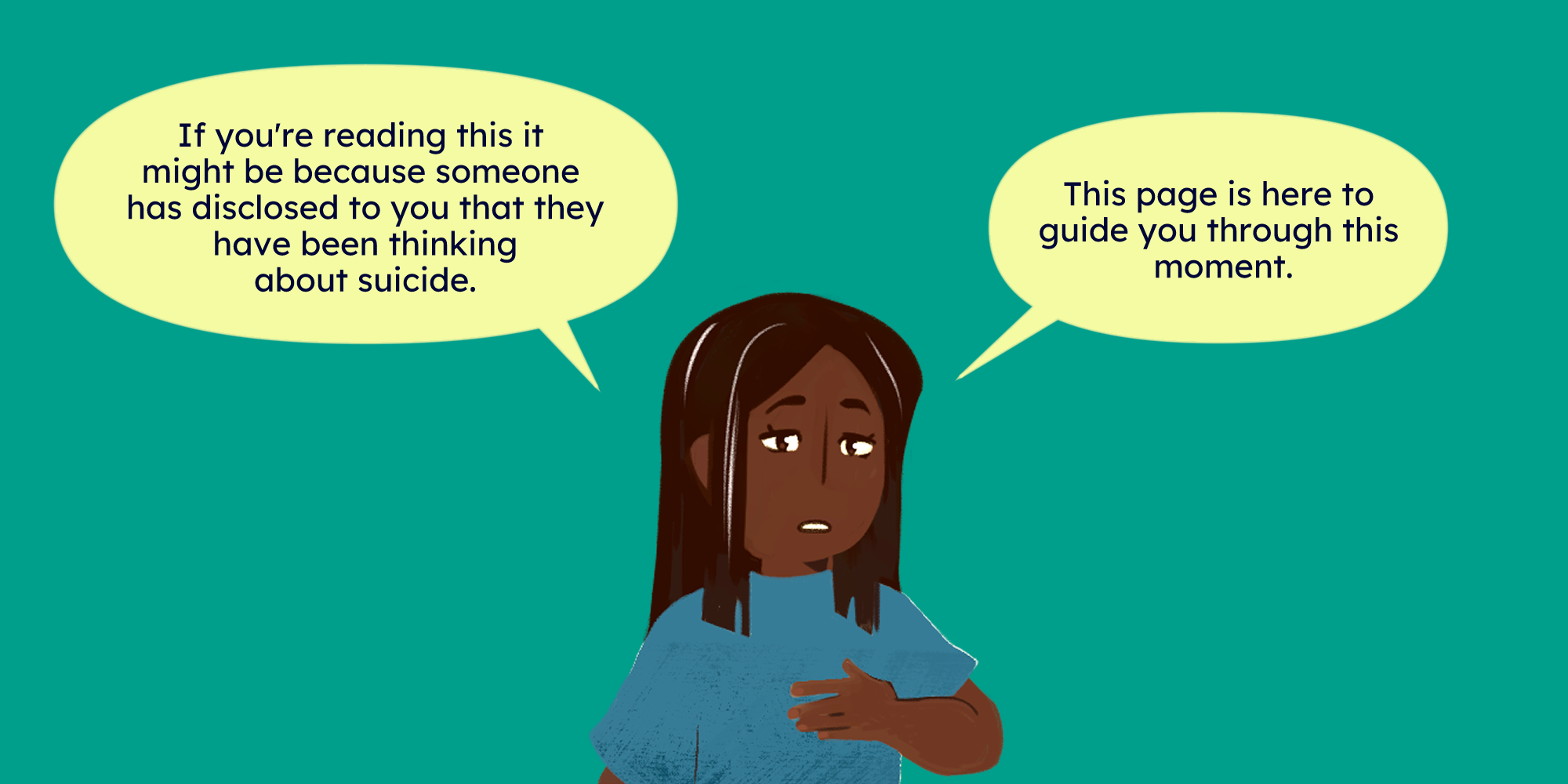
It's good that you're here
There's a chance that a young person you know has asked you to visit this web page.
It may be that they have disclosed to you that they are thinking about suicide and asked you to look here with a QR code or a link.
It's very possible that they're looking for some support and they consider you their 'safe person'.
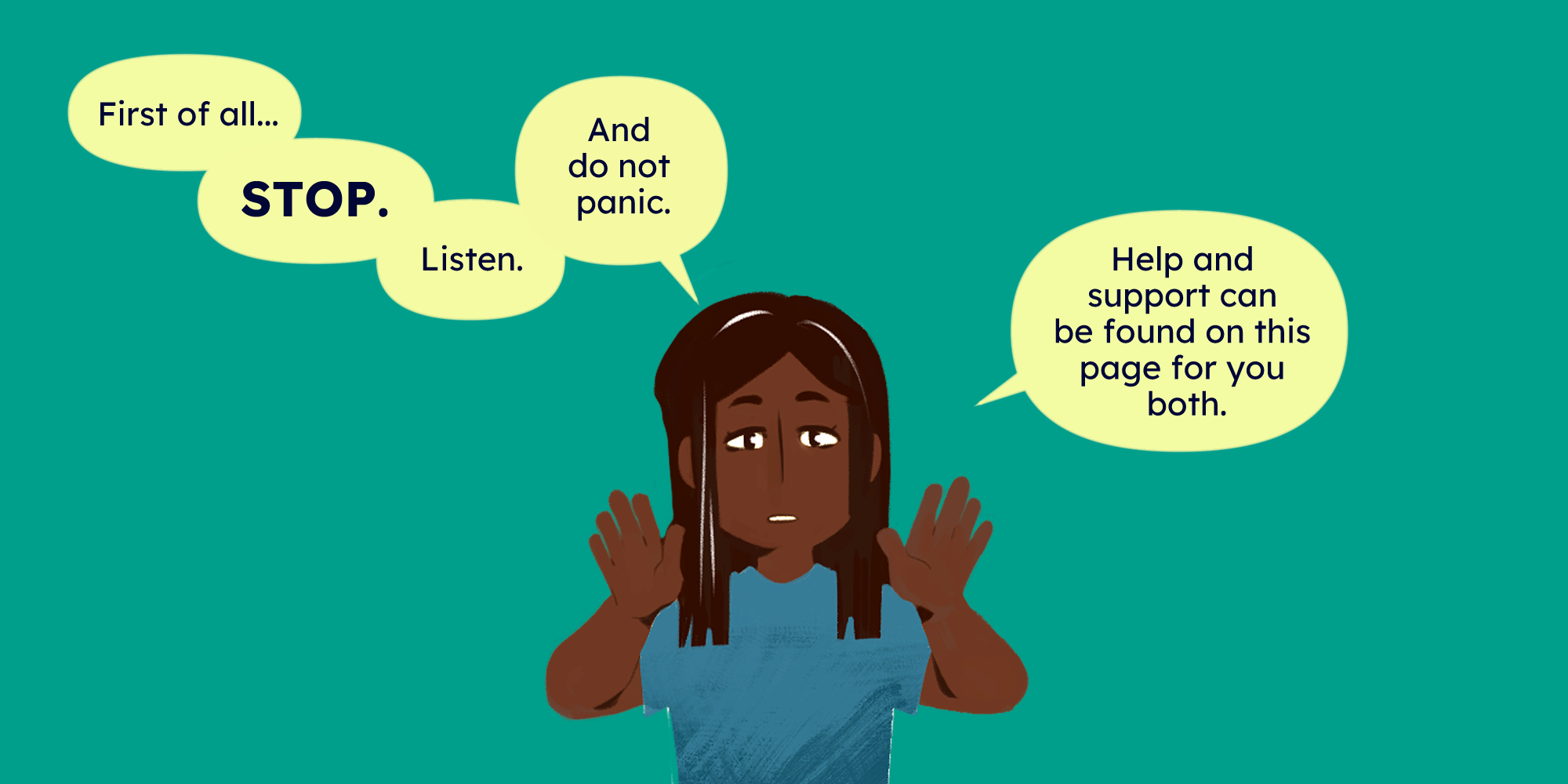
Before anything else, take a pause
You might be stressed or anxious about someone you care about, but it is really important to keep calm.
On this page you will find helpful advice and support. For a moment take a breath, we know it's not easy.
When you are able to talk with the young person listen to them, and make sure they know you've heard what they're saying.
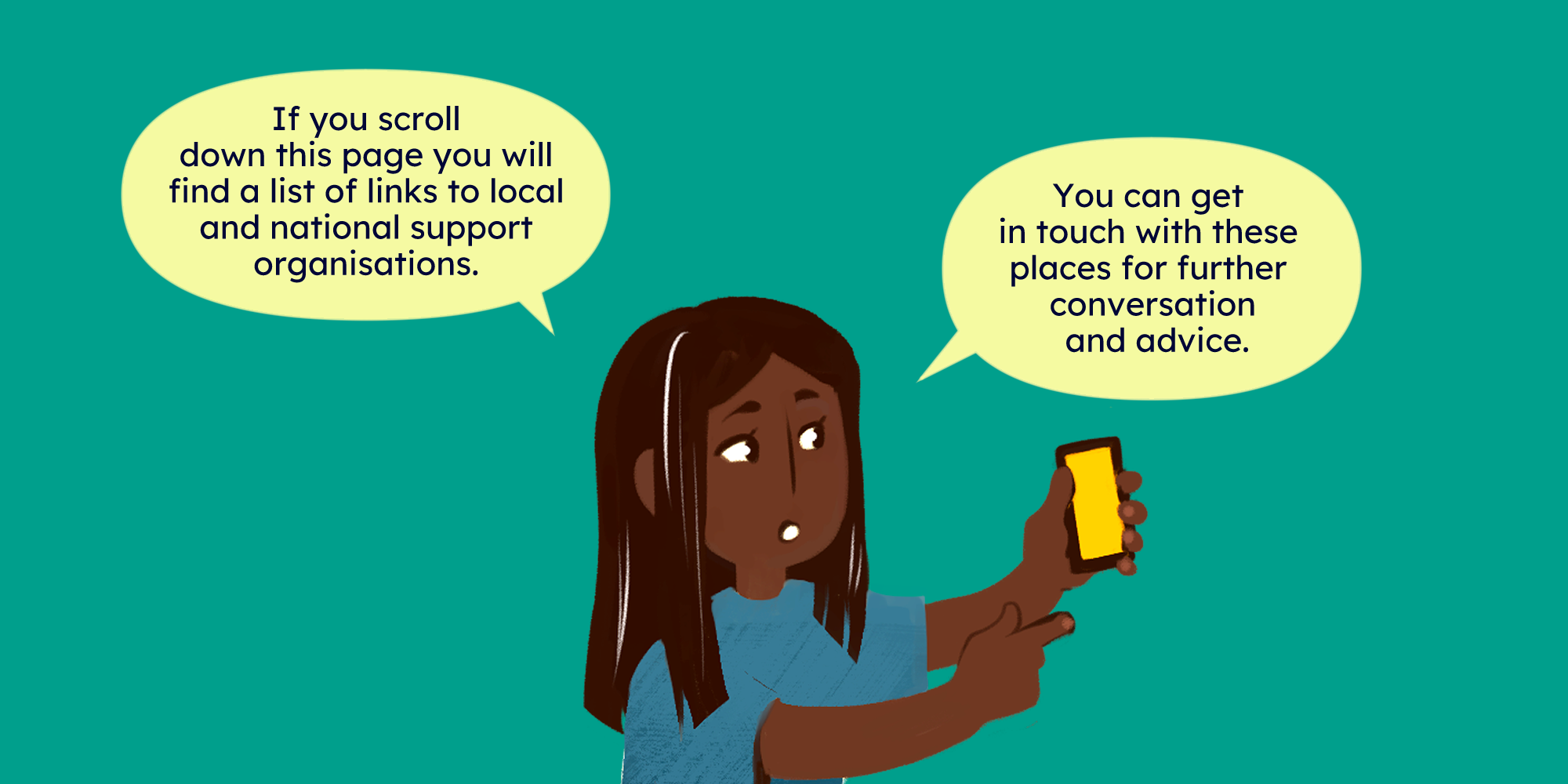
Where to start?
The young person may well have a toolkit which has information and advice including some simple activities, including finding a safe person to talk to. You might like to start by talking to them about this.
A 'safe person' is a good listener, can be trusted, is usually close by, and will always be responsible and respectful of people's feelings. If a young person is talking to you about this it means they think of you this way.
Your young person may also have thought about a method of communication and the right space to have a chat. Ask them.
The enabling conversations toolkit
In partnership with V&A, we've developed this toolkit with other young people to help them think about what to do if they are having thoughts of suicide.
We appreciate that it's a really difficult subject, and that's why this resource has been created to help have conversations that can keep young people safe.
This guide helps a young person decide on, a safe and trusted person to talk to, an environment they feel secure in, and to think about little things to keep them grounded.
As well as this digital edition of the toolkit, you can also download printable and digital PDFs.
Simply click or tap to download the right resource for you:
How to Use the Enabling Conversations Toolkit - click here
Enabling Conversations toolkit, printable, colour version - click here
Enabling Conversations toolkit, printable, black and white version - click here
Enabling Conversations Belly Bands (printable) - click here
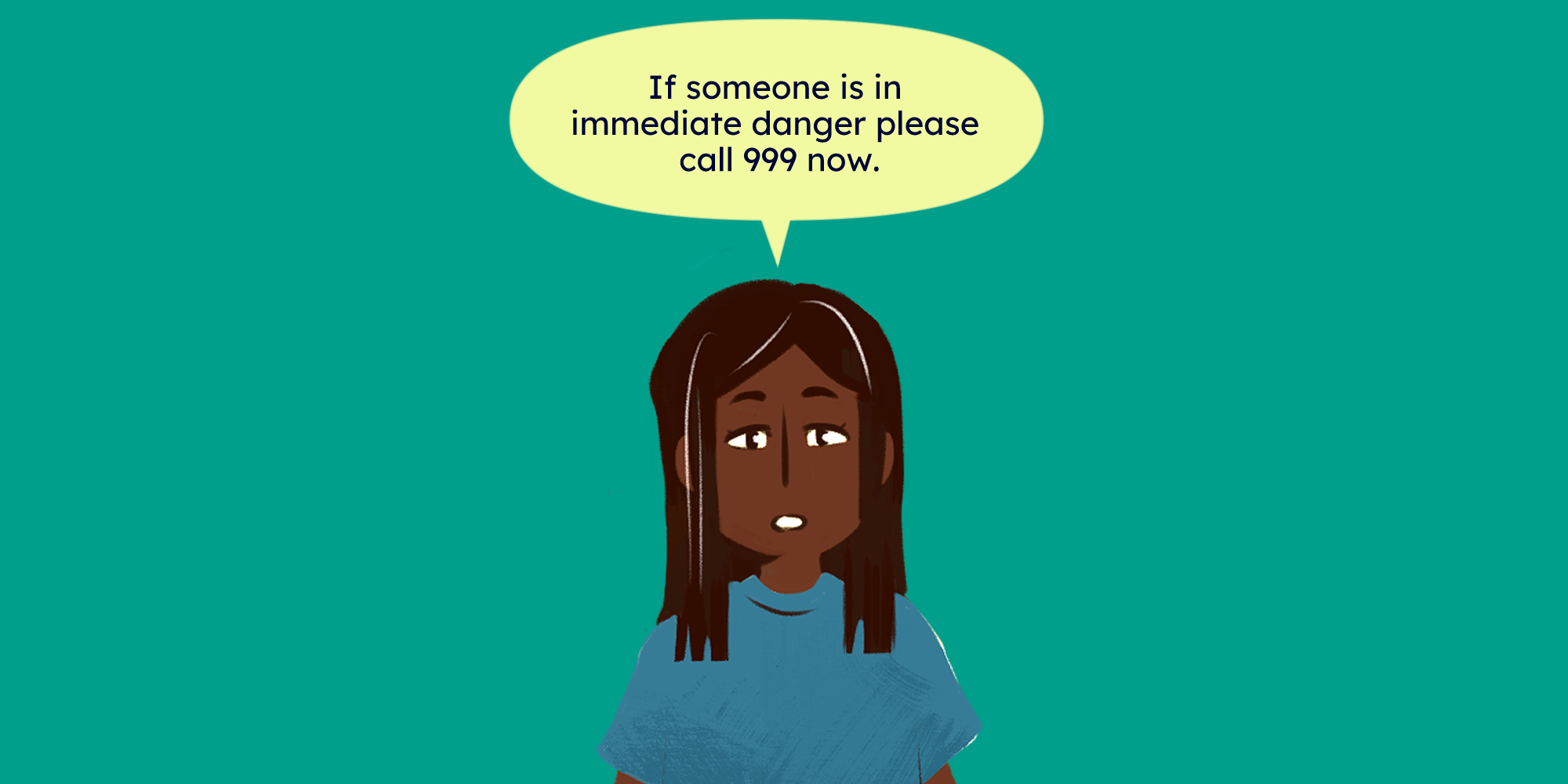
If you need support now
There may be a chance that your young person is in danger.
It's important to ask them if they are considering suicide.
If you are in any doubt about whether they can keep themselves safe, please contact one of the support services below.
Do not hesitate to dial 999 if you think the young person is in immediate danger.
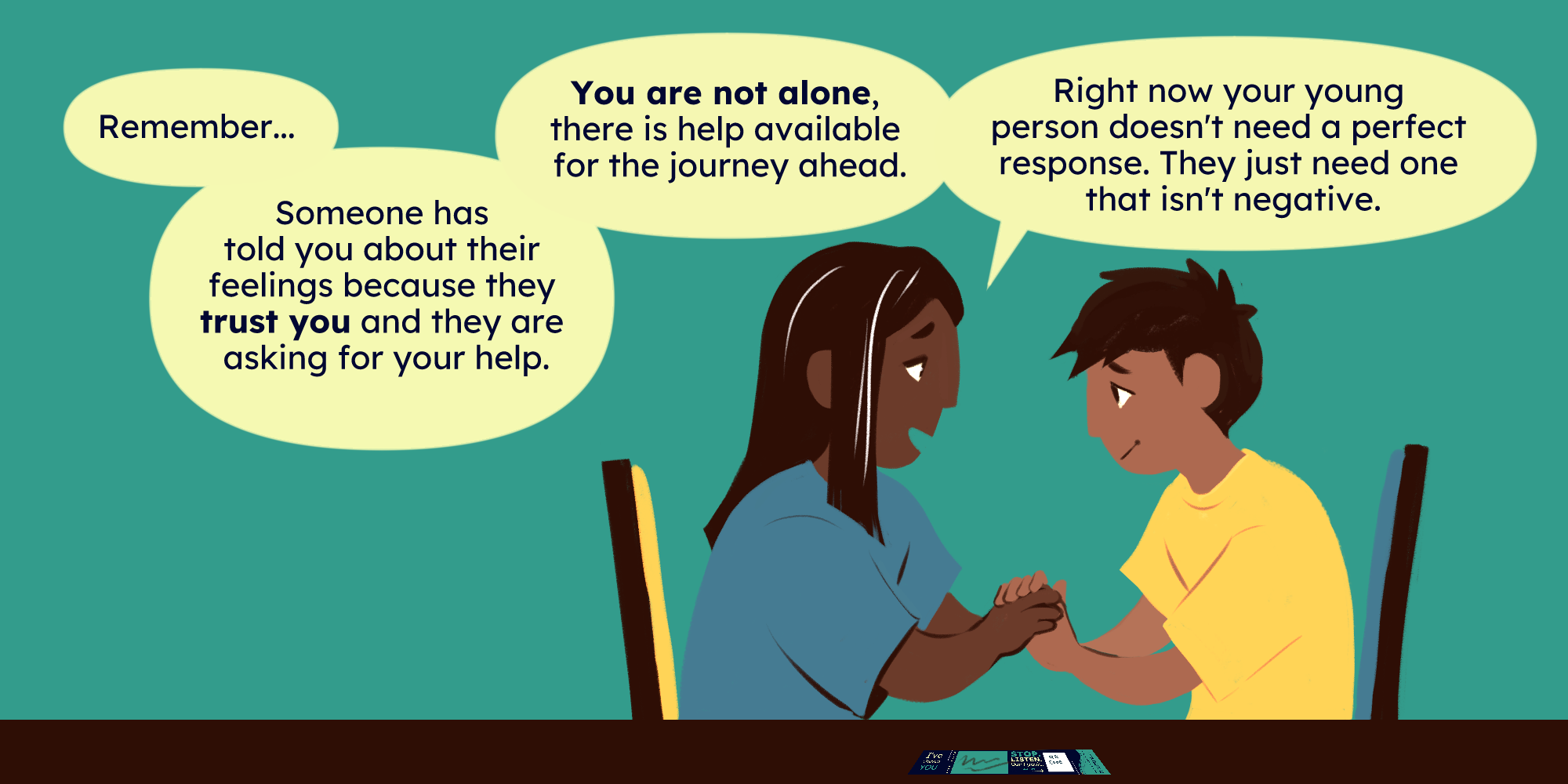
You are trusted
Being trusted means that a young person feels they can confide in you, which is good news.
But it doesn't mean you need to have all the answers, that’s where the support links below can help you both.
Right now your young person doesn't need a perfect response.
They just need one that isn't negative.
Information and support lines
If you are ever in immediate danger or have the means to cause yourself harm you should call 999.
Contact a helpline
If you're experiencing suicidal thoughts or you feel like you want to end your life right now, it's important to know that you're not alone. There is practical support and advice available.
It may not be an easy, but reaching out for support is an incredibly brave thing to do.
HOPELINE247
Call: 0800 068 4141 | Text: 88247
Open 24/7 and can support anyone supporting a young person with thoughts of suicide
Children First
Call: 0800 028 2233 | Web chat: click here
Open Monday-Friday from 9am to 9pm and Sat-Sun, 9am to 12pm providing support to parents/carers.
SHOUT
Text: 'SHOUT' to 85258
This service is anonymous and available to everyone 24/7. When you text 'SHOUT' to 85258 you will receive an automatic reply before being connected to a trained volunteer who will listen without judgement to how you are feeling
NHS 24
Call: 111 and choose the mental health option
Open 24/7. A trained adviser will ask you questions to find out what’s wrong, give you medical advice and direct you to someone who can help you.
Samaritans
Phone: 116 123
Open 24/7. When you phone Samaritans a trained volunteer will offer you a safe place to talk, and will support you with your concerns, worries and troubles.
Our Enabling Conversations toolkit was co-produced with young people and created by Cat Laird and Eilidh Macleod in partnership with V&A Dundee and Suicide Prevention Scotland.
If you have used the toolkit, and you'd like to let us know about your experience you can email jenny@cosla.gov.uk.

